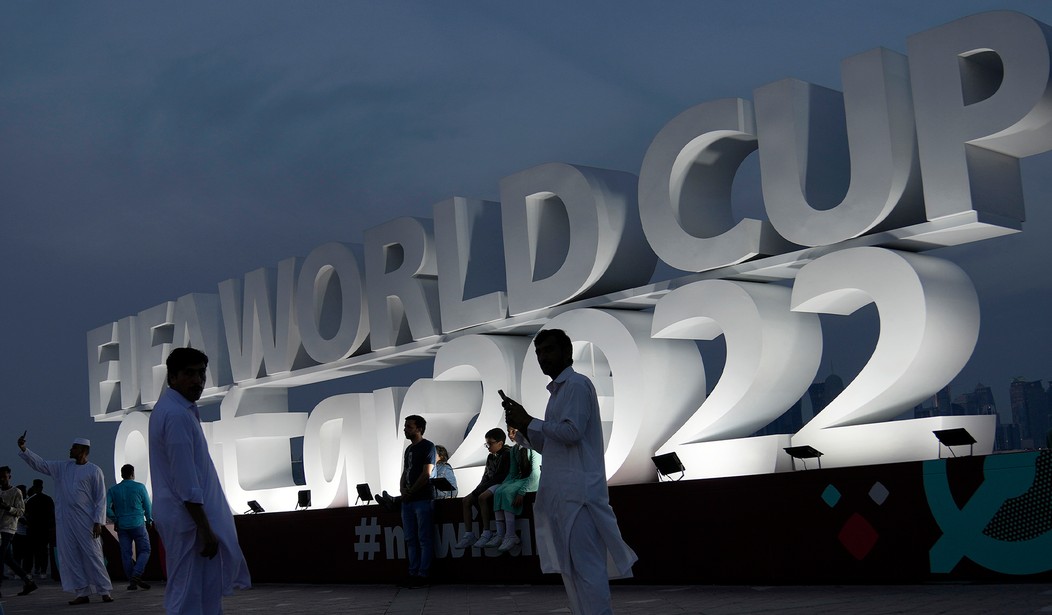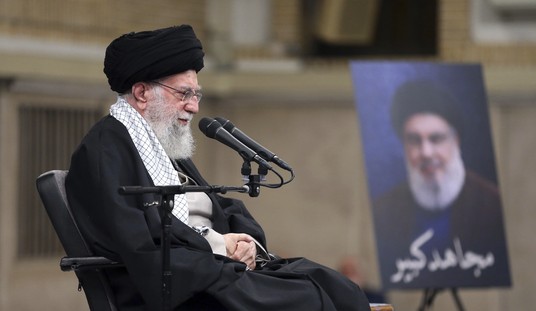For a variety of reasons, the importance of the United States not only maintaining, but building upon its close relationship with Qatar cannot be overstated. Jutting out into the Persian Gulf, Qatar’s entire land border to the west is Saudi Arabia, once America’s most steadfast ally in the region.
Saudi Arabia is now showing favored nation status to Russia. This includes helping Moscow beat sanctions for its invasion into Ukraine by receiving Russian oil shipments for resale to Europe while raising prices for domestic oil shipped to the United States. The royal family’s façade of modernization fell apart with the brutal murder of journalist Kamal Khashoggi.
Across the narrow Persian Gulf is Iran, where religious extremists remain in power through tyranny cast upon the country’s citizens, exportation of global terrorism, and creating instability throughout the region. To the Gulf’s northernmost region, anarchy has consumed Iraq.
Should Saudi Arabia continue to move itself further into Russia's sphere of influence, America’s only guaranteed allies in the Persian Gulf will be The Arab Emirates, Qatar, and Kuwait. Without strategically placed Qatar near the center of the Gulf, American and European sea traffic, having cleared the Straits of Hormuz at the Emirates, would have a long and dangerous run to Kuwait.
Without U.S. Navy presence in the Gulf, Iran would spiral further out of control. The ability of America and Western Europe to maintain their economies and care for their own populations will be devastated without the ability to import Qatar and Kuwaiti petroleum products.
Through "Qatar Vision 2030," Emir Tamim bin Hamad al Thani and the national government are determined to bring the country and its population firmly into the 21st century. This well formulated course of action, complete with goals and milestones, could also be called “Middle East Vision of the Future.”
Recommended
Emir al Thani recognizes that history could repeat a mistake that lasted for centuries. While Europe was struggling to get beyond the Dark Ages, the people of the Middle East were far ahead in science, medicine, technology, and education. The region remained stagnant while Europe advanced through the age of exploration, renaissance, religious reformation, industrial revolution, and enlightenment. Meanwhile, countries of both North and South America developed a race to the 20th century.
World War I made it very clear how far the west had progressed. The once-powerful Ottoman Empire that ruled the Middle East, Balkans, and Africa’s Mediterranean region was no match against British and French forces in the First World War.
Emir al Thani and his government planners understand wealth currently being enjoyed by Qatar is based upon fossil fuel exports, especially natural gas from its North Field. They also understand this is a temporary source of incoming wealth. Countries that do not prepare for and embrace realities of the future will collapse as did the Ottoman Empire.
Qatar Vision 2030 recognizes existing challenges to overcome and courses of action to achieve success. Like a well-architected structure, the Vision is constructed upon four interdependent development pillars: economic, social, human, and environment.
The economic development pillar is based on the understanding that global petroleum dependence is not forever. For the short-term, it includes responsible natural resource management. For the long-term, the pillar lays out transformation toward a knowledge-based population. Like Japan and South Korea in the last half of the 20th century, Qatar is striving for an intellectual and production-based society.
The social development pillar blends humanitarian values with Islamic philosophy, exactly what nation-wide Iranian protestors are currently demanding. Critical in this pillar is the honoring of cultural heritage and family cohesion.
The human development pillar has required the Qatari government to do a major self-examination. Foremost has been the treatment and use of foreign workers. For Qatar to advance as fast as it has in a short time, massive immigration was allowed. Vision 2030 recognizes that human rights must extend to foreign nationals. Other elements of the human development pillar include advanced health care, employment opportunities, and improved education. These elements are directly related to the short and long-term success of the economic pillar.
The environment development pillar embraces technology to decrease air pollution and increase alternatives to fossil fuel. It now leads the Middle East in solar technology, which overlaps with the economic development pillar. Vision 2030 identifies the greatest threat to natural landscapes and habitats is its rapidly growing population. Few countries have thought about permanent damage until it was already done, let alone taken progressive action to control it.
In 2010, Qatar won the honor of hosting the 2022 World Cup. Qatar successfully used the games to introduce itself to the world as a burgeoning modern country the same way South Korea did with the 1988 Olympic Games in Seoul. The massive preparatory work in both countries enhanced critical infrastructures not just for the games, but for the long-term. South Korea continued on to greater heights, as will Qatar.

























Join the conversation as a VIP Member